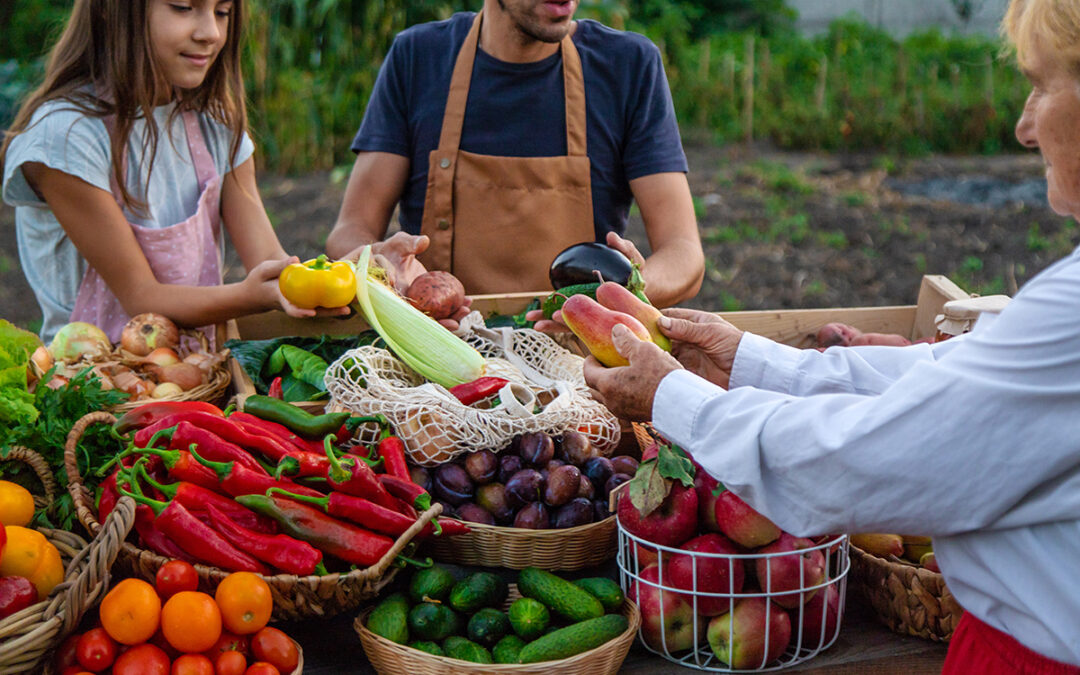As the debate between organic and conventional food continues to grow, many people are left wondering if choosing organic truly offers significant health benefits.
To explore this topic, seasoned registered dietitian nutritionist Kim Arrey joins CJAD radio host Kelly Alexander in an enlightening discussion. In this interview, we’ll delve into the nutritional differences, potential health impacts, and environmental considerations of organic versus conventional foods. Kim will share her expert insights, helping us understand whether organic food is indeed better for our health or if it’s just another trend in the ever-evolving landscape of dietary choices. Join us as we uncover the facts behind the organic food movement and its implications for our well-being.
This podcast was aired on the Weekends with Ken Connors show on CJAD.
Kelly Alexander: Kim the Environmental Working Group recently posted their Dirty Dozen and Clean 15 list of foods that contain the most and the least pesticides. Can you tell us about his list?
Kim Arrey: Kelly the EWG has been publishing these lists for the past 20 years. The EWG uses data from the USDA and the FDA to compile the list. They compile data on a total of 46 different vegetables and fruits. They found the highest levels of pesticides in the Dirty dozen, and lowest levels of pesticides in the clean 15. And there were another 19 that did not make either group and are lost somewhere in between. The EWG does not analyze data from organically produced fruits and vegetables so this is not a comparison.
Kelly Alexander: Kim does this mean that you should completely avoid the foods on the Dirty Dozen and only choose foods on the clean 15?
Kim Arrey: No it does not. Even the EWG states very clearly that the benefits of eating vegetables and fruits outweigh the possible concerns that you might have about eating conventionally prepared foods. The EWG suggest you purchase organic foods, but there are problems with organic foods as well.
Kelly Alexander: Kim, you say there are problems with organic foods? What are the problems? I thought that organic foods are healthier and have more nutrients.
Kim Arrey: Kelly, I know that just about everyone thinks that organic foods are healthier. There is some evidence that organic foods contain fewer pesticides residues and do not bring as high a concentration of these residues into your body. The jury is still out on whether they are more nutritious than conventionally grown produce. Older studies say that there is no nutritional benefit to eating organically produced foods. However some news studies show that there can be a small increase in the amount of protein and the amount of plant chemicals in organic foods. The EWG even says: the health benefits of eating vegetables and fruits of any kind outweigh the risks of eating foods that contain conventionally grown produce.
Kelly Alexander: Kim are you saying that it is not worth it to buy organically grown produce?
Kim Arrey: Kelly it is mostly important to eat vegetables and fruits, your 6-10 portions a day. It is important to make sure that you do not get so caught up in little details of healthy eating that you forget the big picture. The big picture is that your body needs nutrients that you can only get from food. And it is important to choose nutrient dense foods every day. So if your budget permits you to choose organically grown produce, and you can obtain it easily and you enjoy it, then by all means choose organic food. But if you choose not to purchase and eat organically grown food, well that is not an excuse to eat mostly ultra processed foods and forget all about your healthy plate.
Kelly Alexander: Kim what about organic foods like the breakfast cereals for kids and pizza and other processed foods?
Kim Arrey: Kelly an ultra processed food is an ultra processed food. Sometimes the word organic is used as a bit of a health halo. But organic chips are still chips. Organic sweetened breakfast cereal is still a sweetened cereal with not much fibre. If you like that sweet cereal, go ahead and eat it. But just make sure that you also take a minute to look at that choice objectively and may any tweaks to your diet that you need to. Mix that sweetened cereal with some high fibre cereal or maybe make sure you choose that when you have a high fibre lunch or supper later in the day.
Kelly Alexander: I guess that organically grown foods are better for the environment?
Kim Arrey: That is the conventional wisdom. If you use fewer pesticides it must be better for the environment. But that is being questions by a number of researchers. One of the down sides of organic farming is that it uses more land. This means that ultimately the carbon footprint of organic farming is larger than that of conventional farming. It also means that as the population grows, and the demand for food increases, we would have to take for forests and other usable land and turn it into agricultural land. One of the biggest challenges that farmers face is how to produce more food per acre: that means less spoilage, less waste and getting the most yield on the same amount of land. That is quite the challenge.

